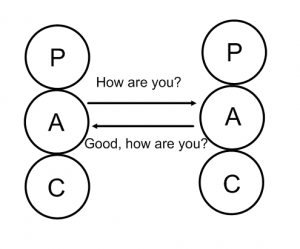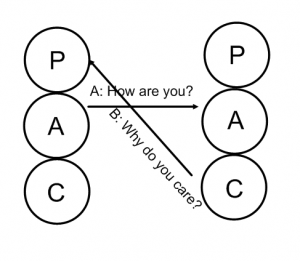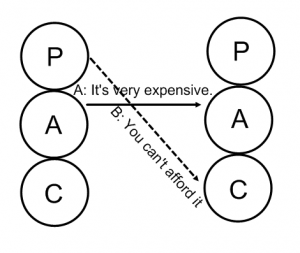I’m pleased to introduce you to today’s guest blogger, Dr. Adam Sheck. Dr. Sheck is a Clinical Psychologist and Couples Counselor in Los Angeles trained in Imago Relationship Therapy. He blogs about relationships at his Passion 101 Blogsite.
 What is the “Imago” and what does it have to do with how and why we choose our partner? As a psychologist and couples therapist, I’m often asked what my view is on what brings couples together, on what that attraction is, and what it is about. Here is my answer, and it lies within the concept of the Imago which I’ll explain shortly. Warning: if you’re looking for an answer that is about soulmates or karma or fate or beshert, you’ll be disappointed. My answer is based upon psychological principles.
What is the “Imago” and what does it have to do with how and why we choose our partner? As a psychologist and couples therapist, I’m often asked what my view is on what brings couples together, on what that attraction is, and what it is about. Here is my answer, and it lies within the concept of the Imago which I’ll explain shortly. Warning: if you’re looking for an answer that is about soulmates or karma or fate or beshert, you’ll be disappointed. My answer is based upon psychological principles.
You know that old cliché that we marry our mother or we marry our father? Well, from a psychological perspective, there is certainly a great deal of truth to that. I’m trained and certified in Imago Relationship Therapy, which is a really powerful and successful form of couples therapy.
In this theory, we speak about the Imago which is Latin for image. Deep inside our unconscious, we hold this image of our “perfect” partner. This image, the Imago has all of the sights and sounds and smells and feelings we gathered while we were growing up. And guess what, our model for that is very strongly based upon our primary caregivers, usually our parents and sometimes also our extended family. The Imago is also based upon our neighbors and the books and newspapers and magazines we read and the television and movies we watched. And these days, of course, it’s also based upon the ubiquitous Internet.
And we take all of those images record and store them with our own unique logic, which is based upon some combination of our genetics and our upbringing and our developing personality. The kicker here though, is that the unconscious image we have created as the Imago not only includes the good qualities we witnessed, but also the negative traits of our caregivers. As children, we’re like sponges and we absorb it all. And so, when we meet someone that is close enough to this Imago, this internalized blueprint, our radar goes up. And if they have enough of those qualities or we believe that they have enough of those qualities, we fall “in love” and enter that first stage of relationship, the romantic stage, the honeymoon stage.
The honeymoon stage is easy though, as we focus upon the positive qualities of the Imago. The challenge in most relationships though, is when the honeymoon stage “wears off” and we’re left with this person who has many of the negative traits of our primary caregivers! That’s where an experienced couples counselor or relationship coach can be of support. I’ll talk more about the Three Stages of Relationship and how to successfully navigate them in another post. For now, just mull over the concept of the Imago and see how it applies to your current relationship or past ones if you’re single right now.
Thank you so much,
Dr. Adam Sheck
To reward your loyalty to Ian, I’d like to gift you with my Special Report, “20 Rituals For Romance!” which you can download at www.freepassiontips.com
 Script is often compared to destiny or fate by those who misunderstand this Transactional Analysis idea. So what does a TA therapist mean by script?
Script is often compared to destiny or fate by those who misunderstand this Transactional Analysis idea. So what does a TA therapist mean by script? Now I want to start this post by saying your boss isn’t all bad, I mean we are in the land of
Now I want to start this post by saying your boss isn’t all bad, I mean we are in the land of  A – “Sit down in your seat.”
A – “Sit down in your seat.” Pete – “You’re late again! You better make the time up!” (Controlling Parent inviting Child response)
Pete – “You’re late again! You better make the time up!” (Controlling Parent inviting Child response) message that gets picked up. The most well known example is “want to come in for coffee?” after a night out with a new partner. That invite is unlikely to be about discussing the richness of a mocha (unless you’re Tom Hanks in “Big”).
message that gets picked up. The most well known example is “want to come in for coffee?” after a night out with a new partner. That invite is unlikely to be about discussing the richness of a mocha (unless you’re Tom Hanks in “Big”).